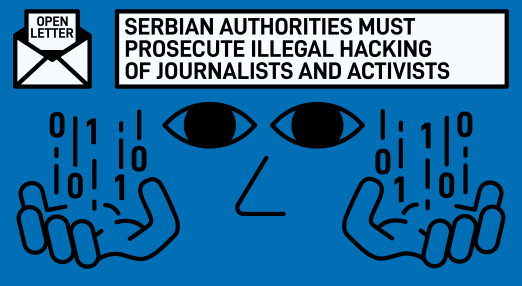CJEU saved the HADOPI: what implications for the future of data retention in the EU?
The Court of Justice of the European Union judgement on the HADOPI case (C-470/21) is significant for the ongoing debate on mandatory retention of metadata, such as traffic and location data. EDRi provides key takeaways and what they mean for the upcoming data retention legislation by the European Commission.
Filter resources
-

CJEU saved the HADOPI: what implications for the future of data retention in the EU?
The Court of Justice of the European Union judgement on the HADOPI case (C-470/21) is significant for the ongoing debate on mandatory retention of metadata, such as traffic and location data. EDRi provides key takeaways and what they mean for the upcoming data retention legislation by the European Commission.
Read more
-

The Security Playbook
EDRi affiliate SUPERRR is challenging “Security Theater” as a societal maneuver.
Read more
-

Surveilling Europe’s edges: when research legitimises border violence
In May 2024, EDRi member Access Now’s Caterina Rodelli travelled across Greece to meet with local civil society organisations supporting migrant people and monitoring human rights violations, and to see first-hand how and where surveillance technologies are deployed at Europe’s borders.
Read more
-

Stop Europol’s Trojan Horse: 168 organisations and experts call to reject “insidious” police powers expansion
EDRi published today a joint statement by 168 organisations and experts calling for the rejection of the Europol Regulation and to amend the proposed Facilitation Directive. The so-called ‘Facilitators Package’ would expand surveillance measures, erode the right to seek asylum and criminalise human movement.
Read more
-

Apple and the long secret arm of the UK Government
Apple disabled their 'advanced data protection' service for UK customers following a secret UK Government order demanding access to global user data. EDRi member Privacy International criticises this weakening of security standards for users in the United Kingdom.
Read more
-

Poland searches for silver bullet for CSA Regulation
The Polish Council Presidency attempts to break the deadlock on the controversial 'Chat Control' proposal. We analyse the new approach and what could happen if Member States approve it.
Read more
-

Why the new Europol regulation is a Trojan Horse for surveillance
The EU Commission’s proposal for a new Europol Regulation as part of the recast of the ‘Facilitator’s Package’ is a pretext for unchecked expansion of power and resources for Europol, the EU’s policing agency, at the expense of those they claim to protect.
Read more
-

Protect Not Surveil position paper: Stop Europol’s expanding digital surveillance against migrants!
EDRi and the Protect Not Surveil coalition published position paper today to call for the rejection of the Europol reform. The proposed legislation would expand Europol’s surveillance powers, put lives at risk, and criminalise migrants and solidarity organisers.
Read more
-

Pre-travel controls: Digitalising travel documents
We are responding to a public consultation on the European Commissions’ digitalising travel documents proposal. This proposal promises convenience in travel but could pave the way for biometric mass surveillance and automated discrimination.
Read more
-

Serbian authorities must prosecute illegal hacking of journalists and activists
Today, 19 December, European Digital Rights (EDRi) and 58 organisations urge the European Union’s institutions to take action to stop the Serbian authorities’ illegal use of spyware to target journalists, activists, and members of civil society.
Read more
-

New European Commission confirmed: our takeaways on what to expect
On 1 December 2024, the new political leaders of one of the EU’s most powerful institutions – the European Commission – officially took office. As part of their nomination process, they shared their digital visions for the next five years. Spoiler alert: the fight for digital rights will be as important as ever, with data protection, encryption and privacy all on the chopping block.
Read more
-

Non-fitted devices in the UK Home Office’s surveillance arsenal: Investigating the technology behind GPS fingerprint scanners
Privacy International’s technical research on the so-called non-fitted devices (NFDs) used by the UK Home Office to track migrants shows that these devices are intrusive and stigmatising by design. The use of NFDs is an expansion beyond the use of GPS ankle tags of the UK’s surveillance of migrants who are on immigration bail and subject to electronic monitoring conditions.
Read more
